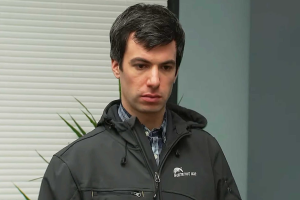In the wake of the Oct. 7 Hamas attacks on Israel, the subsequent war and the staggering rise of antisemitism around the world, Anna Shternshis, director of the University of Toronto’s Anne Tanenbaum Centre for Jewish Studies knew she had to do something.
“The interest in the field of antisemitism increased. All over North America campuses started to ask the question: what is antisemitism? How do we make sense of it?” said Shternshis
She reached out to Ron Levi, Distinguished Professor of Global Justice at the Munk School of Global Affairs and Public Policy, and together they launched the Lab for the Study of Global Antisemitism at UofT.
The new lab is a hub for scholars from across disciplines to examine antisemitism in a global and multidisciplinary context.
Shternshis, who has an international reputation for her expertise in Jewish culture in Russia and the Soviet Union, as well as Yiddish music, said the idea was to take advantage of what academics do best, which is conducting research on timely topics.
Levi, director of the Global Justice Lab which studies justice systems under stress, says the university with its global footprint is the best place to do serious work on big questions like antisemitism.
According to Levi, it was the fastest project he can ever remember coming to fruition. It took weeks instead of years to go from an idea to a functioning lab, thanks to the support of the university, he said.
Before Oct. 7, Levi was already studying the rise of antisemitism in France and other countries around the world.
“My own work has been moving in this direction. We cannot ignore the sense of insecurity that many Jews are speaking about and reporting,” he said.
The lab has three main purposes, the first being to conduct high-level academic research.
“This includes locating and using the very best evidence possible and applying contextual research,” said Levi.
“The advantage of academic research is that it’s often slow, but the impact is way beyond immediate concern,” said Shternshis.
The second is teaching in the classroom which includes designing new academic courses for undergraduate and graduate students about antisemitism.
“The idea is to offer a course on antisemitism that is interdisciplinary and global which would allow students from across various programs to take the course and have it count towards their degree,” said Shternshis.
According to Levi, the course will provide students with rigorous context in which to learn the history and present circumstances and evidence surrounding antisemitism.
The third function of the lab is policy and communications.
“When you have the best resources, you have to ensure some of that is communicable in places outside of campus such as through a speaker series, making working papers available, and more,” said Levi.
Right now, if someone wants to research antisemitism in three different countries, they have to look across research papers.
“We see ourselves, going forward, as a place that can help researchers find, rely on, and make sense of and work with the data that is available in the world and be a gateway to that kind of work or material,” said Levi.
The lab is the first of its kind in Canada, Levi said. There are other comparable centres at Yale, University of Michigan, New York University, and the University of Pennsylvania. Hebrew University and Tel Aviv University also have similar labs.
Shternshis and Levi plan to reach out to these institutions for collaboration efforts.
“The topic of antisemitism goes way beyond the current moment. It’s always important to study antisemitism and any other forms of prejudice and hate. One of the purposes of the lab is to look at it from a multidisciplinary, historical, contemporary, and international perspective,” said Shternshis.
Author

Jonathan Rothman is a reporter for The CJN based in Toronto, covering municipal politics, the arts, and police, security and court stories impacting the Jewish community locally and around Canada. He has worked in online newsrooms at the CBC and Yahoo Canada, and on creative digital teams at the CBC, and The Walrus, where he produced a seven-hour live webcast event. Jonathan has written for Spacing, NOW Toronto (the former weekly), Exclaim!, and The Globe and Mail, and has reported on arts & culture and produced audio stories for CBC Radio.
View all posts








